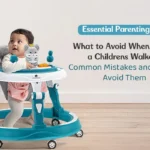Hey there, tired parents! We all know that sleep is very important for our little ones, but finding out exactly how much: The sleep they need (and when!) can feel like a mystery. Let’s break it down, stage by stage, so you can understand what to expect and create the best routine for your baby or toddler. So let’s talk Age-appropriate sleep times for children: and toddlers – including sleep needs, recommended schedules, and nap times!
Let’s get you and your baby some good sleep. And, all of these tips are based on my years of experience as an RN and expert baby sleep consultant.
Age-appropriate sleep times for infants (0-3 months)
Need for sleep: 14-17 hours per day
General Schedule: Newborn dots follow a strict schedule, sleeping in short stretches of 2-4 hours around the clock.
During those first few months, your newborn is still figuring out life outside the womb, and their sleep is all over the place. They sleep when they need to, wake up for feedings and diaper changes, and won’t settle into a particular pattern yet. You’ll find your little one napping 4-5 times a day, and these naps can last anywhere from 30 minutes to 2 hours. Focus on creating a comfortable, calm environment and responding to their cues, which will help them gradually feel safe day and night?
Age-appropriate sleep times for babies (4-6 months)
Need for sleep: 12-15 hours per day
Bedtime: Between 6:30 PM and 8:00 PM
Naps: 3-4 naps per day, lasting 30 minutes to 2 hours
As infants reach 4-6 months, their internal clocks begin to mature, and they begin to follow an optimal sleep schedule. This is a great age to establish a consistent bedtime routine to help you recognize when it’s time for bedtime. A typical bedtime routine may look like a warm bath, a short story, or some gentle rocking before bed. At This Stage, Many Babies Will Start To Sleep Longer Stretches At Night, Although They May Still Wake For Feedings. With a little patience, you can guide your newborn to a more stable nighttime sleep.
Want a personalized sleep plan for your newborn? Check out my baby sleep consultant services here!
Age-appropriate sleep times for older children (7-11 months)
Need for sleep: 12-15 hours per day
Bedtime: 6:30 PM to 8:00 PM
Naps: 2 naps per day, usually lasting 1-2 hours each
Age-appropriate sleep times for babies between 7 and 11 months old include a two-a-day routine, and their nighttime sleep becomes more regular. Bedtime is early in the morning, and they may be able to sleep through the night without needing to eat. Older babies tend to be more consistent, so keeping their nap and bedtime routines consistent can make a big difference.
Self-soothing is another important skill at this age. If your baby wakes briefly during the night, giving them a chance to reset will help them (and you) sleep better.
Doesn’t your baby’s sleep routine look like this? Get a sleep consultation to understand why.
Age-appropriate sleep times for young toddlers (12-18 months)
Need for sleep: 11-14 hours per day
Bedtime: 7:00 PM to 8:00 PM
Naps: 1 nap per day, usually lasting 1-2 hours
By 12-18 months, most toddlers are ready to transition from two afternoon naps to one long nap. This transition can be difficult at times, so it can help to gradually ease into it by shortening the morning nap before skipping it altogether.
Young toddlers are energetic and need plenty of time to help them unwind. At this stage, it is very important to maintain a consistent bedtime routine, as they may begin to resist sleep due to increased independence and curiosity. If your toddler is struggling with the transition to a nap, try going to bed earlier to help them make up for any lost rest.
Toddlers (18-24 months) at age appropriate times
Need for sleep: 11-14 hours per day
Bedtime: 7:00 PM to 8:00 PM
Naps: 1 nap per day, lasting about 1.5-2 hours
For older toddlers, sleep is more predictable, but routines become even more important.
At this age, they are full of energy and often resist bedtime in favor of exploration and play (we all know how bedtime negotiations go with a toddler). To help, keep a consistent nap and bedtime schedule, even on weekends. You may start to see signs of “toddler independence” with bedtime fights or requests for “just one more story.” Giving your toddler choices, like choosing pajamas or a favorite bedtime story, can make bedtime feel like something they’re resisting instead of being a part of. Being firm with bedtime boundaries reinforces good sleep habits.
If you’re having consistent trouble with your toddler sleeping, it might be time to get some help!
What about 2-3 year olds?
Need for sleep: 10-13 hours per day
Bedtime: Between 7:00 a.m. and 8:30 p.m
Naps: 1 nap per day, lasting about 1-2 1-2 hours
As toddlers approach two years old, some will start shortening their naps, while others need a full-length nap. Even if your baby is getting away from napping, have quiet times during the day to encourage relaxation. A consistent bedtime routine is important, as is a predictable bedtime.
Toddlers tend to experience sleep regressions or develop nighttime fears, so comfort them at bedtime with a security object like a blanket or stuffed animal. Feeling safe and prepared can help.
What about 3-4 year olds?
Need for sleep: 10-13 hours per day
Bedtime: 7:00 PM to 8:30 PM
Naps: If they still blink, expect about 1 hour, often in the afternoon
3-4-. By year old, many babies start to outgrow nappies altogether, but can still benefit from afternoon quiet time. During this transition, you may find that bedtime routines become more important as you resist at night. Introducing a storytime ritual or a few minutes of scratching before bed can help signal the end of the day. If they resist sleep or seem overtired, maintaining quiet time or short naps can keep them on track without too much challenging at bedtime.
Tips for all ages:
Building a healthy sleep foundation is a journey that grows with your baby. From childhood, a calm bedtime routine and sleep-promoting environment can make a big difference. Make sure the room is cool, dark and quiet, and if there is background noise, try using a white noise machine.
Above all, be consistent, but flexible. Every child is different, and their routine may need small adjustments to work smoothly.
And, if you notice that your little one has them Age-appropriate sleep times for children:it may be worth doing a sleep consultation. A baby sleep consultant can work with you and figure out your individual needs, as well as create a personalized sleep plan. If you’re looking for some help, I’ve worked with hundreds of families. You can do it Check out my services here And book a consultation today!






